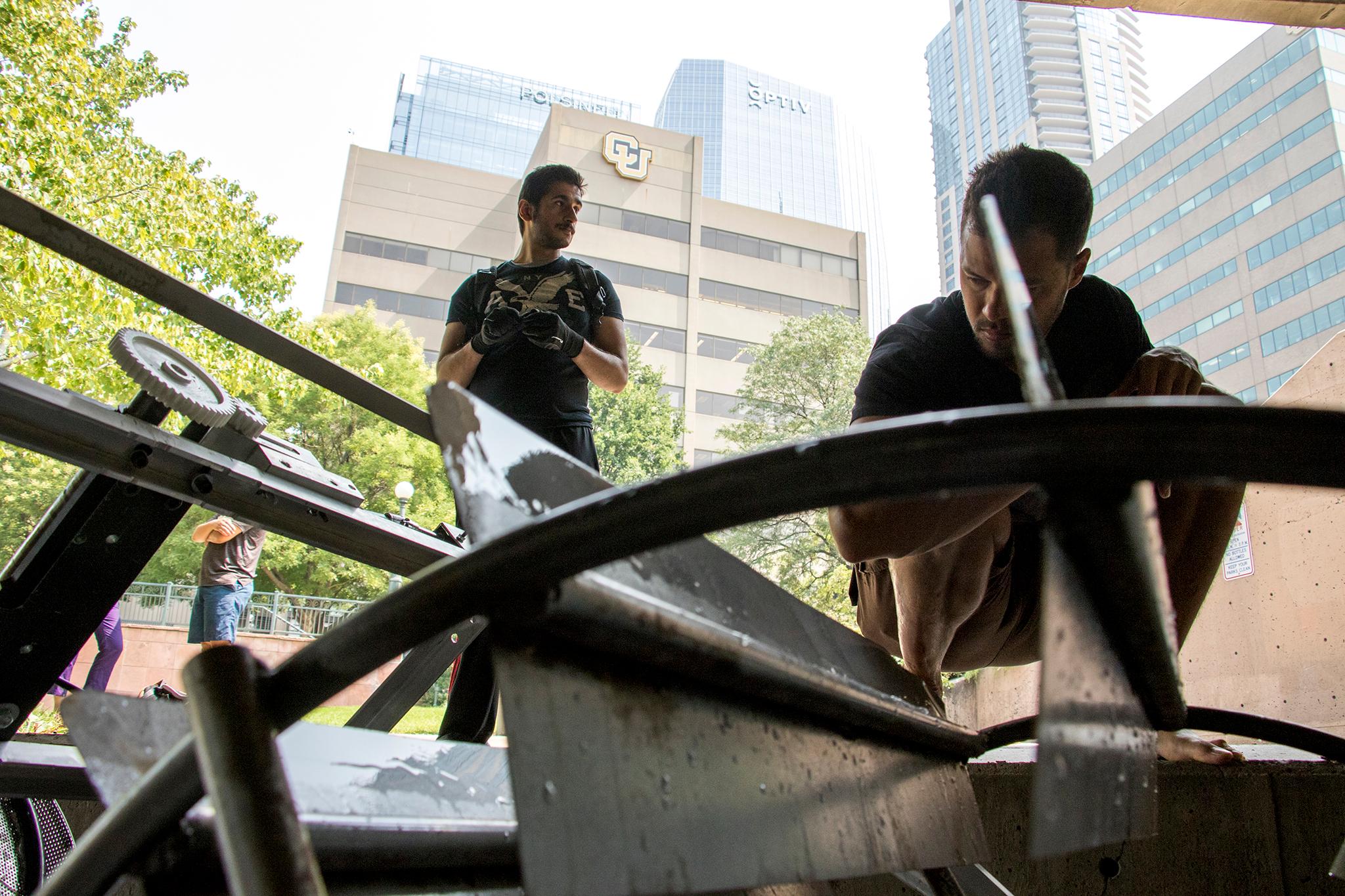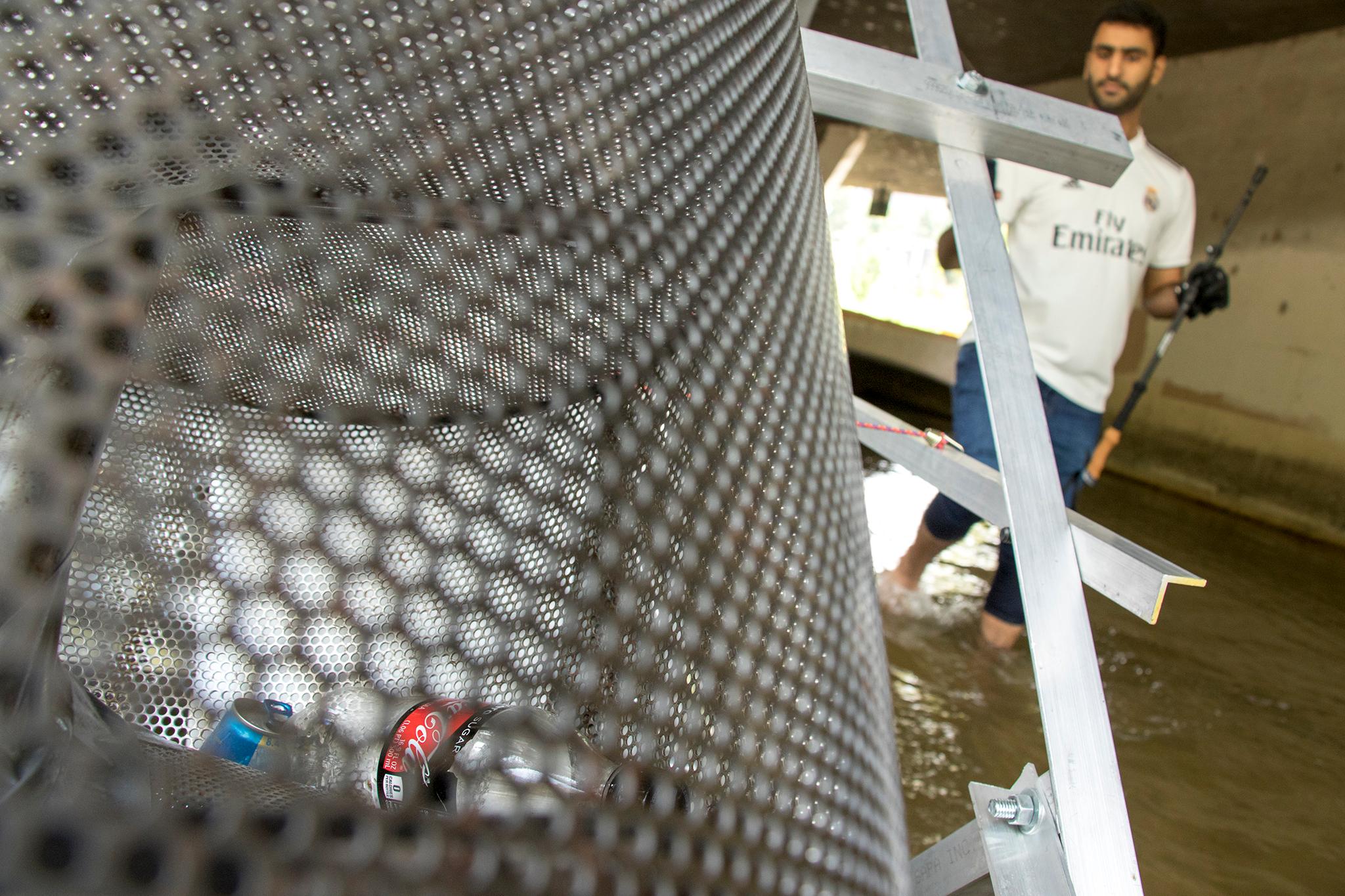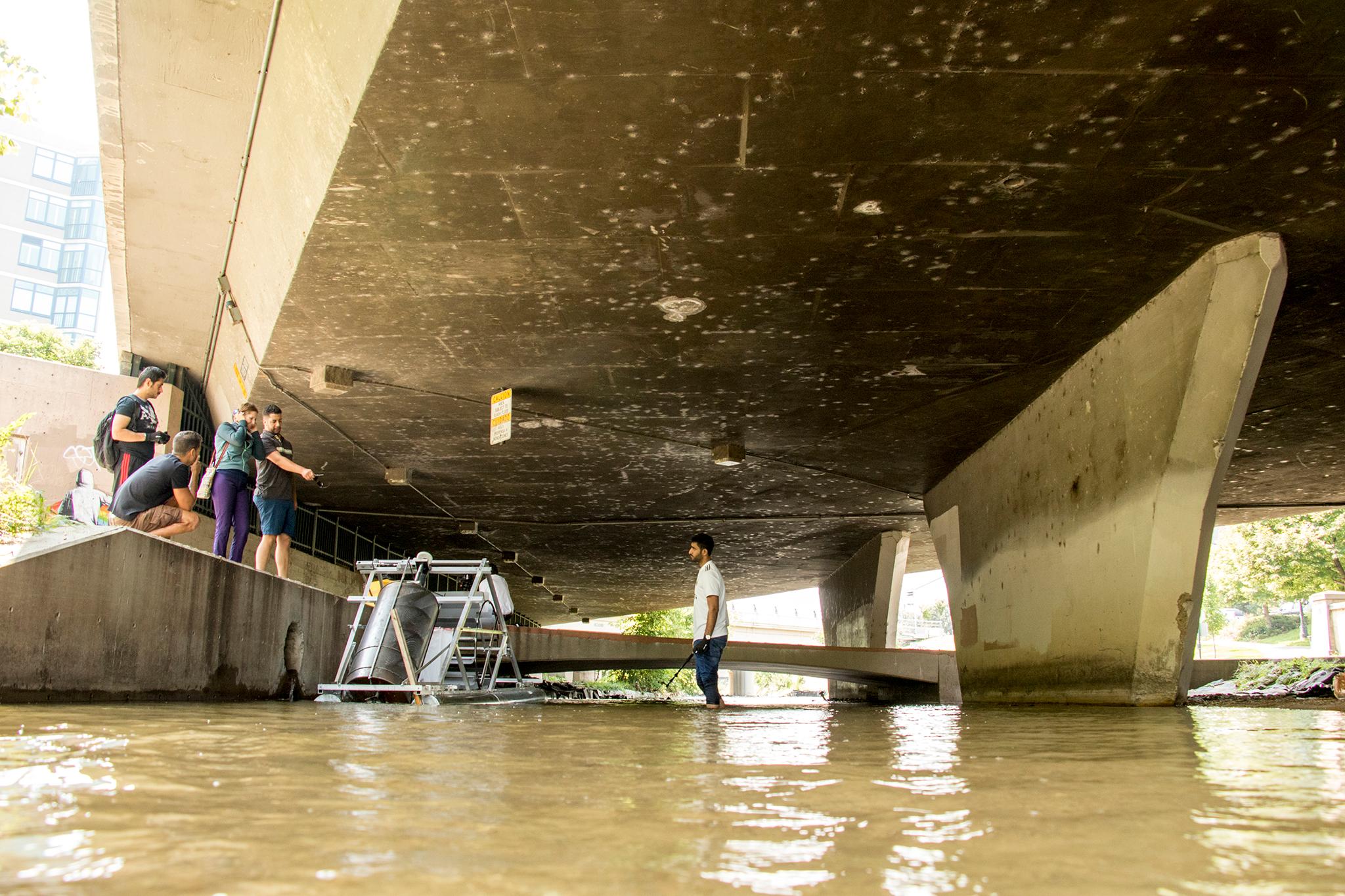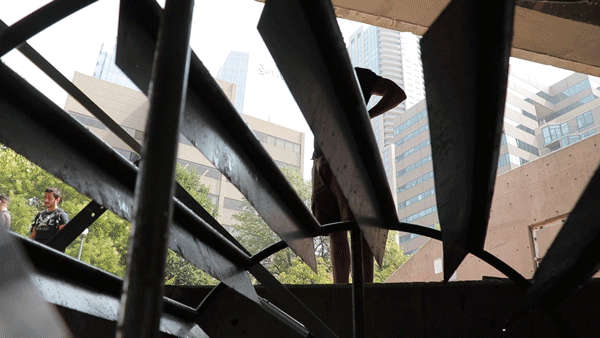Last week, we reported that a RiNo landowner is hatching a plan to install a huge water wheel on the South Platte that ought to (1) look cool and (2) pick up garbage. On Monday, University of Colorado Denver engineering students tried out a real version of such a device, although it was significantly smaller than the RiNo proposal.
The UCD wheel is a first-draft version that's about the size of a small car and operates without any external power. It floats on twin pontoons and, when moored, uses the creek's current to turn a metal wheel that ushers trash up into a screw conveyor system and into garbage bag.
The whole endeavor is led by Professor Rafael Sanchez for his senior mechanical design class.
"Our trash has always been a universal problem everywhere," Sanchez said, but for his students, this is more about the technical challenge.

He began leading these experimental design efforts to participate in a competition put on by the Greenway Foundation, a nonprofit founded in the '70s to clean up the South Platte when it was a much nastier place than today. City habitat managers still contend with a lot of trash, and the Greenway Foundation says (on their website) they're turning to students' innovative ideas to close the gap between traditional upkeep methods and the reality that "trash and other forms of pollution continue to be an ongoing challenge to the river."
The Foundation's Clean River Design Program is in its second year, and most of the entries -- like an array of colorful fish with netted tails to gobble up garbage -- rely on the river's energy like Sanchez's water wheel. But this wheel ended up being disqualified from the competition because it's too big. Sanchez and his students hit the Cherry Creek nonetheless.
Despite some mechanical errors, the wheel did exactly what it was supposed to. It cranked away on the creek as Sanchez and his students inspected their work.
"It's a great little machine," said senior Aimin Elgheriani. "We're going to build a new one this semester that hopefully won't have any of the problems this one did."

Beyond small fixes, the team says they have ideas for a solar-powered, motorized component that would allow the wheel to operate in a lake or other body of water that otherwise has no current. Even more idealistic was an idea to make one of these floating wheel setups into some kind of river bike that a user could ride while cleaning.
While Professor Sanchez laughed at the idea, his student, Muaath Albadin, yelled: "I think we can do it!"
Sanchez is focusing on this proof of concept first. But, he responded, "We're working on it."














